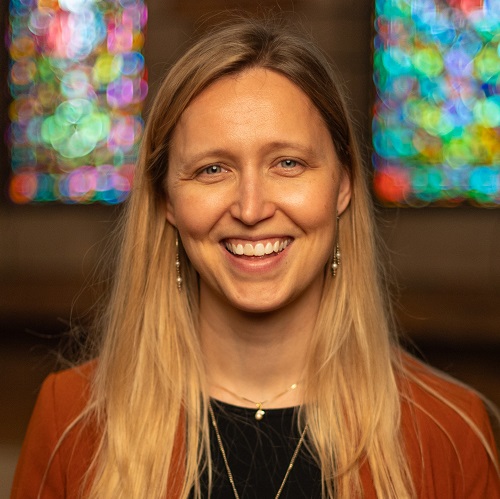There’s a delightful little creature in the most recent Harry Potter movies. It’s called a niffler.
Physically, the niffler is an endearing cross between a gopher and a platypus. Psychologically, it’s a cute and cuddly kleptomaniac who will stop at nothing to stuff all of your shiny objects into the kangaroo-like pocket on the bottom front of its round tummy. (See a glimpse of the niffler’s antics.)
The niffler is, in a word, wonderful.
I was reflecting on the niffler after I saw “Fantastic Beasts Beasts and Where to Find Them.” Specifically, I was thinking about my reaction to the niffler, and to the other fantastic beasts that populate the movie of the same title. Much like the Muggle (non-magical human) of the first movie, I was almost overcome by the magic and whimsy of the amazing animals. A bird that expands to fill every inch of possible space, but will contract to the size of a teapot to pursue a tempting morsel of a bug. A cheeky green twig that can pick locks but pouts when neglected. A mammoth-sized glowing rhinoceros that is just looking for love.
As I tried to diagnose my delighted distraction, I kept going back to the moment when Jacob, a non-magical human, first experiences for himself the fantastic realm of these enchanting creatures. His jaw drops, hinged open as far as possible. His eyes are glowing saucers, and he stumbles over the ground as if half-drunk with some powerful emotion. And that emotion, which I realized was also the source of my euphoria, was wonder.
Movies are eminently helpful for sermon illustrations. They are also a useful way to proverbially take the temperature of many of the people in our pews today. And if the popularity of the “Fantastic Beasts” and its sequel, “Crimes of Grindelwald,” is any indicator, many of our parishioners may be yearning for something — anything — that causes our clickbait-weary attention to say ahhhhh, even just for a moment. We yearn, it seems, for an experience of true wonder.
Recent studies on wonder suggest that the emotion does more than just stimulate feel-good hormones. It also is one of the few experiences left these days which can serve to broaden our horizons, open us up to change, to possibility, to the new.1 Is it any wonder then (catch that?) that it is also a word that carries great theological weight in the Hebrew Bible?
The Hebrew word for wonder is most often peleh or nifloat (which I doubt had anything to do with J.K. Rowling’s deliberations in naming the niffler, but I still enjoy the accidental connection). It is used to refer to a work of God, often some sort of salvation or aid wrought by the divine: God’s miraculous ability to bring Sarah joy and laughter in the form of offspring in her old age; the salvation of the Hebrews from the land of Egypt; even, yes, the prophesied Wonderful Counselor about whom Isaiah sang and who Handel caused to soar. It’s a persistent theme in the psalms (note Psalm 72 on Day of Epiphany, though you have to extend the reading to include verse 18), the prophets, and the post-exilic prayers which lament the blindness of the people to the wonders of the Lord (Nehemiah, Psalm 106, etc.).
How are your people weary of the bright flashing lights, the promises to make them better, the chaos and conflict that characterize our world? How are your people yearning for something to bring them awe? How do the upcoming Bible stories lend themselves to testifying to the wonderful works of the Lord our God, who comes to make all things new?
Perhaps you yourself are also weary and in need of a little wonder. If so, I highly recommend not Fantastic Beasts and Where to Find Them (though it is delightful), but picking one book — one book — of the Bible and living in it for a few months. Let its words wash over you. Write down a verse and carry it in your pocket. Pray these ancient texts which testify to God’s wonders, and let the emotion open you up to the Holy Spirit’s work in your world.
Finding “wonder” in upcoming RCL readings
- Psalm 72 (Day of Epiphany; extend reading to include verse 18, 1/6/2019)
- Psalm 31 (Palm/Passion Sunday, 4/14/2019)
- Psalm 77 (Semi-continuous Psalm, 6/30/2019)
- Genesis 18 (Complementary 1st Reading, 7/20, 7/27/2019)
- Psalm 107 (Semi-continuous Psalm, 8/4/2019)
- Psalm 71 (Semi-continuous Psalm, 8/25/2019)
- Joel (Semi-continuous 1st Reading, 10/27/2019)
- Psalm 17 (Complementary Psalm, 11/10/2019)
- Isaiah 9:6 (1st Reading, 12/24/2019)
- Psalm 96 (Psalm, 12/24/2019)
1 For more information, see Robert Fuller’s article “Spirituality in the Flesh” (for abstract, click here).

